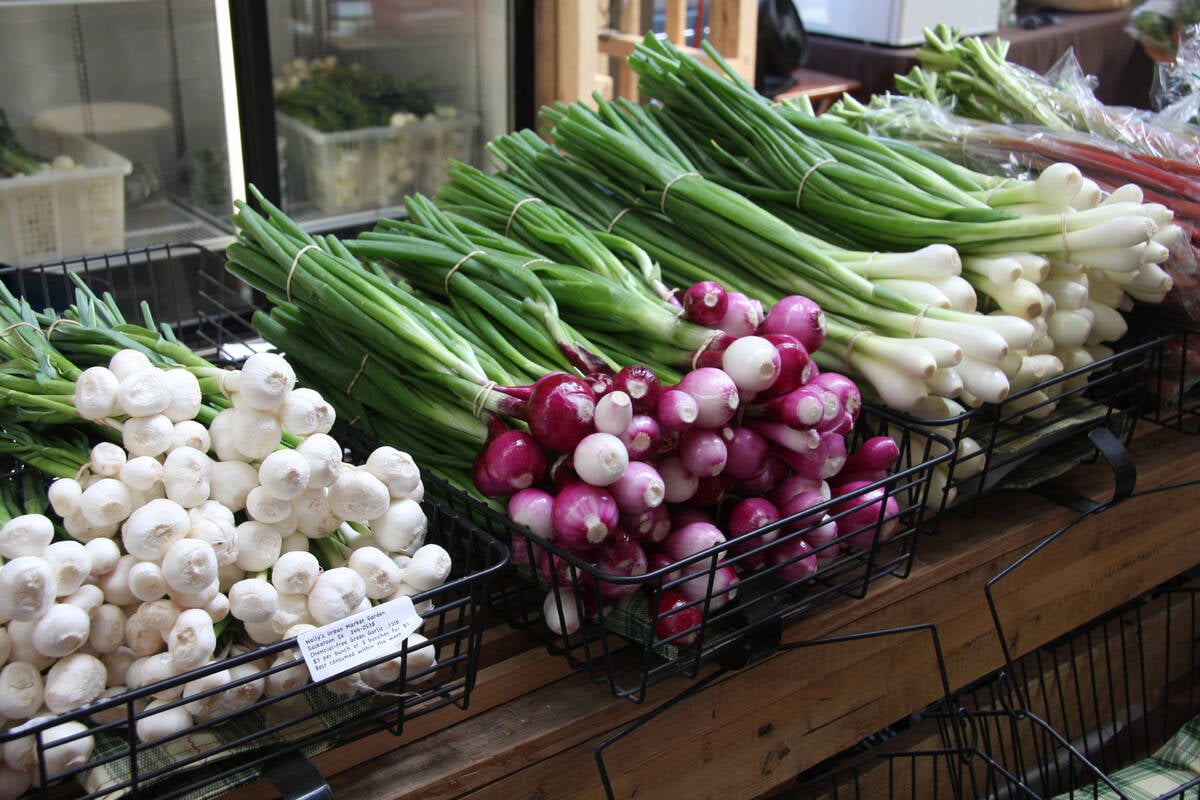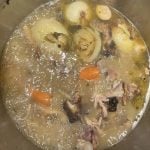Three women share their stories in The Smiling Mask … Truths about Postpartum Depression and Parenthood, a book written to encourage a mother with depression to remove her mask, talk about her feelings of shame and guilt and face the fear of rejection and the stigma around mental illness.
Authors Tania Bird, Elita Patterson, Carla O’Reilly and Peggy Collins provide information that would have helped them cope during their own PPD. By telling their stories, they also hope that health-care providers will be more empathetic and improve prevention, screening and intervention strategies.
Read Also

Starting a small business comes with legal considerations
This article sets out some of the legal considerations to start a business to sell home-grown product, such as vegetables, herbs, fruit or honey.
There is a chapter on the husband’s perspective, information on PPD symptoms and strategies for supporting mothers. The book is intended to provide hope, healing and harmony to women and families.
Research indicates that 15 to 85 percent of women may experience baby blues, often beginning after the baby is born and lasting a few days.
Symptoms may include a lack of emotional stability, mood swings, irritability, fatigue, tearfulness, generalized anxiety, sleep and appetite disturbance, confusion, mild manic symptoms and elation.
Up to 30 percent of women have difficulty adjusting to a new baby. About 13 percent of new moms struggle with PPD and have a 50 percent chance of it reoccurring with future births.
Women have gone through it for centuries, but the shame, guilt and secrecy of families struggling with it keep women from talking about the illness and getting support.
By supporting mothers with PPD, they will be encouraged to accept their illness and move toward self-acceptance, self-healing and self-forgiveness.
Common symptoms of mothers with PPD include:
- Insomnia or not sleeping well.
- Severe physical anxiety.
- Feelings of vibration from the inside out.
- Tightness of chest.
- Racing heart and difficulty calming down.
- Pacing uncontrollably.
- Excessive perspiration.
- Obsessive and/or compulsive behaviours.
- Sensitivity and over-reacting to minor situations with excessive worry.
- Lack of interest in holding baby or even naming him, which may demonstrate a decrease in bonding.
- Extreme sadness or extreme happiness.
- Over-protectiveness of her baby and paranoia.
- Behaving out of character or displaying abnormal personality traits like hysterical behaviour.
- Fits of rage directed at her baby, family or self (yelling, being rough or ignoring).
- Hints at suicide and/or focuses on death or fears of losing her baby.
- Loss of interest and motivation or withdrawal from others.
How to help:
- Be sincere, listen and accept her feelings. Acknowledge her signs of distress and be supportive.
- Encourage her to talk to her doctor, find out about medications, alternatives and treatment. Help her find methods of coping and healing.
- Give her breaks for things she wants to do and make time for the couple to rest and reconnect. Assist with housework as well as caregiving.
- Encourage the mother with positive energy and inspiration, whether by e-mail, books, music or movies. Encourage her to laugh and remind her that she is a loving mother.
New mother’s self-care strategies:
- Take responsibility for your health. Find a doctor and counsellor. Discuss medication alternatives as well as complementary alternative therapies such as naturopathy homeopathy, acupuncture, therapeutic touch and massage.
- Talk about your feelings. Counselling can be helpful for individuals and couples.
- Let others take care of your baby so you can take a break.
- Show appreciation whenever you can.
- Do not compare you or your baby to anyone else. Do what works best for you and your baby.
- Avoid worrying needlessly. Breathing exercises are helpful or try meditation or prayer several times a day.
- Avoid sleep deprivation and exercise regularly. With your doctor’s approval, take Vitamin B supplements for energy and proper metabolism.
- Try to understand PPD and feel compassion, self-acceptance, contentment and even joy. Consider joining a PPD support group.
- Read positive books, watch positive movies, listen to uplifting music and laugh when you can.
- Take time to tell your story in writing, recording your negative thoughts and feelings to make room for positive ones. Write down positive thoughts also.
- Find ways to nurture your self-esteem. Find a role model and surround yourself with positive, supportive people. Visualizing and affirming positive thoughts and intentions help replace negative ones.
- Admit you need help and accept support. Be specific about what you want.
- Eat a well-balanced diet including lots of raw and fresh fruits and vegetables, especially leafy greens. Drink six to eight glasses of water a day to help flush the toxins out of your system.
- Dance and sing with your child as music has healing properties. Read aloud and sing lullabies to your child.
- Dress to make yourself feel attractive and schedule time with friends for walks or meals.
For more information, visit www.thesmilingmask.com.
Sources: The Smiling Mask … Truths about Postpartum Depression and Parenthood, and This Isn’t What I Expected … Overcoming Postpartum Depression by Karen R. Kleiman, M.S.W. and Valerie D. Raskin, M.D.
Milk-free pancakes
Recently the whole family was home for a funeral. For our morning breakfast, Marla made us these excellent pancakes that require no milk. We loved the cream cheese flavour.
I recommend serving these with fruit slices, fruit jam or fruit syrup. They would also work well for someone who is limiting their gluten intake.
Cream cheese pancakes
8 ounces softened cream 250 g
cheese
3 beaten eggs
2 tablespoons flour 25 mL
2 teaspoons sugar 10 mL
1 teaspoon baking powder 5 mL
Mix ingredients together. Pour onto a hot griddle to form small pancakes. Flip them when bubbles form on the top surface of each pancake.
We also made these scones without milk
Scones
1 cup sour cream 250 mL
1 teaspoon baking soda 5 mL
4 cups all purpose flour 1L
1 cup white sugar 250 mL
2 teaspoons baking powder 10 mL
1/4 teaspoon cream of tartar 1 mL
1 teaspoon salt 5 mL
1 cup butter 250 mL
1 egg
Blend sour cream and baking soda together. Set it aside.
In a large bowl, mix dry ingredients together. Cut in butter, then add the sour cream mixture. Turn onto floured surface. Knead five or six times. Pat into a round shape and cut into 12 wedges. Place two inches (5 cm) apart on greased baking sheet.
Bake in a 350 F (180 C) 12 to 15 minutes until golden brown on the bottom.
Lentil coconut curry
1 onion, chopped
3 stalks celery, chopped
2 large apples, cut and cubed
3 cloves garlic, minced
2 tablespoons vegetable oil 25 mL
2 cups organic green, brown 500 mL
or red lentils
2 tablespoons curry 25 mL
powder (mild)
11/2 cups water or vegetable 375 mL
stock
1 4 oz. can coconut milk 400 mL 1 lime
unrefined sea salt (to taste)
In a pot, heat the onion, garlic and celery in cooking oil at medium temperature for about 15 minutes. Add the apples and heat for another 10 minutes, stirring constantly.
Stir in curry powder and 2/3 cup (150 ml)of water or stock and continue cooking for another 10 minutes. Add more curry if desired.
Add lentils and remaining liquid. Bringto a boil, stirring constantly. Reduce heat and simmer until the lentils are cooked, about 45 minutes.
If lentils are pre-cooked or pre-soaked for four hours, reduce the cooking time to 20 minutes. Once the lentils are cooked, add the coconut milk. Squeeze in lime and add salt to taste.
Barbara Sanderson is a home economist from Rosetown, Sask., and one of four columnists comprising Team Resources. Send correspondence in care of this newspaper, Box 2500, Saskatoon, Sask., S7K 2C4 or contact them at team@producer.com.














